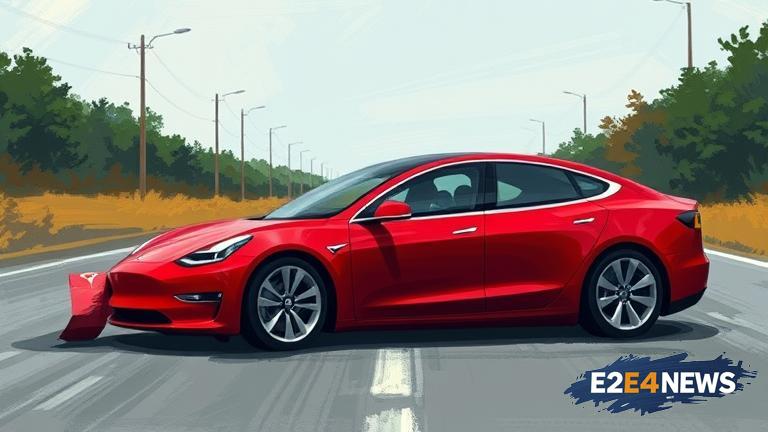In a shocking turn of events, Tesla has been ordered to pay $243 million in damages to the family of a victim who died in a car crash involving the company’s Autopilot technology. The case, which was highly publicized, centered around the death of a young man who was killed when his Tesla vehicle, operating on Autopilot, crashed into a tractor-trailer. The family of the victim had initially offered to settle the case for $60 million, but Tesla rejected the offer, choosing instead to take the case to trial. The jury ultimately ruled in favor of the family, awarding them a staggering $243 million in damages. The verdict has sparked widespread concern over the safety and reliability of Tesla’s Autopilot technology, with many calling for greater regulation and oversight of the company’s autonomous driving systems. The case has also raised questions about the company’s decision-making process, with some wondering why Tesla chose to reject the initial settlement offer. Tesla’s CEO, Elon Musk, has been a vocal proponent of the company’s Autopilot technology, but the verdict has dealt a significant blow to the company’s reputation. The family of the victim has expressed relief and gratitude at the verdict, stating that they hope it will bring about changes to the way Tesla approaches safety and accountability. The case is likely to have far-reaching implications for the automotive industry, with many companies re-examining their own autonomous driving technologies in light of the verdict. Tesla’s stock price has taken a hit in the wake of the verdict, with investors expressing concern over the company’s potential liability in future cases. The company has stated that it plans to appeal the verdict, but for now, the family of the victim has been awarded a significant amount of money in damages. The case has also sparked a wider debate about the ethics of autonomous driving, with some arguing that the technology is not yet ready for widespread use. Others have pointed out that the verdict highlights the need for greater transparency and accountability in the development and testing of autonomous driving systems. As the automotive industry continues to evolve and adapt to new technologies, the Tesla Autopilot crash case serves as a stark reminder of the importance of prioritizing safety and accountability. The company’s decision to reject the initial settlement offer has been widely criticized, with many seeing it as a costly mistake. The verdict has also raised questions about the role of regulators in overseeing the development and deployment of autonomous driving technologies. In the wake of the verdict, there are likely to be increased calls for greater regulation and oversight of the industry. The case has also highlighted the importance of rigorous testing and validation of autonomous driving systems, as well as the need for clear and transparent communication with consumers about the limitations and risks of the technology. As the dust settles on the Tesla Autopilot crash case, one thing is clear: the verdict will have significant implications for the company, the industry, and the future of autonomous driving. The family of the victim has expressed hope that the verdict will bring about positive changes, and that the company will take steps to prioritize safety and accountability in the development and deployment of its Autopilot technology. The case serves as a reminder that the development and deployment of autonomous driving technologies must be done with caution, careful consideration, and a commitment to prioritizing safety and accountability above all else. The verdict is a significant blow to Tesla’s reputation, but it also presents an opportunity for the company to learn and grow, and to emerge stronger and more committed to safety and accountability than ever before.
